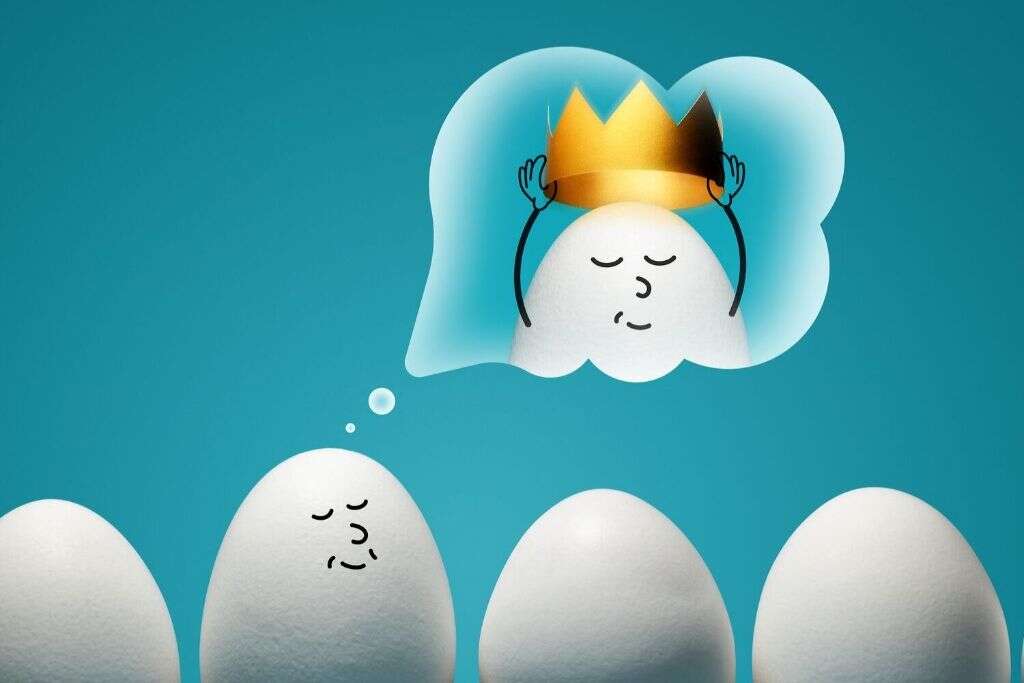10 Narcissist Symptoms
Narcissus is a well-known character from Greek mythology. Looking at himself in the water, he became enamored with his own reflection. When he drowned, a new flower bloomed and was named after him. Some scholars have suggested this myth was a warning to the ancient Greeks, who believed it was bad luck to see a reflection of your own face.
Today, the name of Narcissus is given to a psychological condition known as narcissistic personality disorder, or NPD. It is described in the Statistical Manual of Mental Disorders, Fifth Edition (DSM-5), the official guide used by mental health professionals to diagnose and treat psychological problems. Read the 10 narcissist symptoms to decide whether you or someone you know may fit the personality profile of a narcissist.

1. Inflated Self-Image
Narcissism is not all about gazing at one’s own reflection in the mirror. Most narcissists do consider themselves attractive, but this belief is only one part of the overall personality disorder. Narcissists also think themselves smarter, more talented, and generally better than others. They see everyone else as being inferior and so may act in a condescending way toward them.
A narcissist’s feelings of self-worth are always in relation to other people. He can experience extreme highs and lows in self-esteem, depending on the individual to whom he is being compared. For example, in the face of evidence such as losing a competition or failing a test, he might chock up his failure to bad luck rather than to any inherent weakness. On the other hand, any proof that he is inferior to others may devastate him emotionally.

2. Unrealistic Expectations
It is natural and even healthy to visualize oneself in successful scenarios. For example, a technique to prepare for a speech is to close your eyes and imagine yourself feeling calm, delivering your words clearly, and finishing in the allotted time. A narcissist, however, might imagine himself not just giving a good speech but the audience showering him with gifts and awarding him a prize for the best speech in the history of the world.
Narcissists tend to spend a lot of time daydreaming about unrealistic stories in which they are the main characters. They may fantasize about being a powerful ruler with complete control. Many narcissists also dream of a perfect, idealized romantic relationship with an ideal, flawless mate. These unrealistic expectations can lead to dissatisfaction with the realities of marriage, work, and the more mundane aspects of daily life.

3. Feelings of Being Special
Another symptom of NPD is a deep-seated belief in being so special that only an elite few possess an intellect superior enough to comprehend the person. Any criticism is taken as evidence not in the person’s own failings but in the diminished capacity of the critic to appreciate how special the narcissist truly is. The narcissist believes he should only associate with other special individuals or belong to elite groups.
Narcissism leads to unrealistic goal-setting, based on often unattainably high standards. For example, someone with NPD might believe he plays basketball on the level of a professional athlete. He might believe that only the best talent scouts would recognize his superior abilities and would be motivated to practice primarily to gain their approval.

4. Attention-Seeking Behavior
Narcissists enjoy their own company and assume everyone else does too. They imagine that everyone is looking at them, leaning in to hear what they have to say, and hanging on their every word. They expect to be the favorite in every situation and crave the compliments and adoration of others. Without attention and flattery, they can lack self-esteem and feel sad.
The expectation to be loved by everyone does not always match up with reality. When other people do not respond with the admiration a narcissist expects, he does not change his self-assessment. Instead, he will simply demand the love and attention he thinks he deserves. He may say things like “tell me you love me” or “admit I’m the best.” Besides praise, he also may demand gifts, money, or all of a significant other’s free time.

5. Sense of Entitlement
Entitlement is defined as the belief that one deserves special treatment and privileges without having to earn them, and is core to the belief system of a narcissist. A narcissistic person believes he automatically should be given preferential treatment. He might demand a table at a restaurant without a reservation or front row seats at a concert. He may expect to be hired for whatever job he wants, regardless of his qualifications. He assumes everyone should obey him automatically and inconvenience themselves to satisfy his whims.
Whereas some narcissists have unrealistically high standards for themselves, in many cases their moral principles are quite low or even debased. They may believe that morals, societal norms, or even laws are meant for other people but not for them. For example, they may steal out of a sense that they are simply taking what they deserve, or treat someone unfairly because they regard that person as inferior.

6. Treatment of People as Objects
A narcissist treats people as commodities to be consumed. He uses them for entertainment, service, companionship, or flattery, but does not recognize their full personhood. Most of his relationships are shallow and are based on maintaining his opinion of himself. He has little interest in the needs or feelings of others and will end relationships when they no longer serve his purposes.
A narcissist also regards people as tools to help him get what he wants. This behavior goes beyond social networking or making connections, and rather entails using people to his own advantage. Relationships with others can be antagonistic if he sees them as obstacles to something he wants.

7. Lack of Empathy
Empathy typically develops around age two in children. This stage of development is marked by a realization that other people have feelings different from one’s own, and that they can feel emotional and physical pain. A hallmark of narcissistic personality disorder is a lack of this ability to imagine what others might be feeling in a given situation. Narcissists can come across as cold, unfeeling, or indifferent to the suffering of others.
Narcissism does cause sufferers to focus on the reactions of other people, but only when they have to do with their own behaviors or value. However, narcissists cannot accurately gauge these reactions. They tend to imagine they are affecting people more than they actually are. For example, they inaccurately perceive others to be overly impressed with their looks or achievements. On the other hand, they also cannot perceive when their actions are harming others emotionally or physically.

8. Preoccupation With Envy
A narcissist wants what others have because he feels that he deserves it. His feelings of envy can be intense. He becomes extremely uncomfortable in the presence of those who have things he wishes he had for himself, including material possessions, money, spouses, physical attributes, or personality traits. Sometimes his envy for the possessions or achievements of others serves to fuel additional characteristics of the disorder such as comparing himself with others and a sense of entitlement. Envy can thus lead to a rollercoaster of emotional highs and lows.
A consequence of a narcissist’s fixation on envious feelings is to imagine that others also envy him. He thinks that other people spend as much time thinking about him as he thinks about himself. He imagines that others want to be just like him. Interactions with others are usually interpreted through the lens of envy, and negative feedback is often brushed aside with statements like “they’re just jealous.”

9. Arrogant Demeanor
While not everyone who acts haughty is a narcissist, consistently arrogant mannerisms can be a sign of the disorder. People who display arrogance like to brag about their achievements. They talk about how they are smarter and more talented than others and presume they have skills they do not. They are self-appointed experts on every topic.
In certain situations, arrogance can come across as the positive personality trait of self-confidence. However, the presumptive behavior tends to express itself in all facets of life and is directed toward most people. Narcissists can be expected to treat others with contempt, belittling their competency and worth.

10. Consistent Narcissistic Behavior From an Early Age
If one or two of the aforementioned characteristics describes you or someone you know, it does not automatically mean you suffer from a personality disorder. Almost everyone has behaved narcissistically at one time or another, and this is completely normal. Unless you regularly express five or more symptoms of a narcissist, you need not worry about your mental health.
When mental health professionals diagnose NPD, they also determine how long and to what extent the symptoms have been interfering with a person’s enjoyment of daily life. A true narcissist expresses symptoms in all situations, not just around certain people or when under stress. If five or more symptoms have persisted since a person’s early 20s or earlier and also impair the ability to maintain healthy relationships, it is likely that he or she suffers from the disorder.










